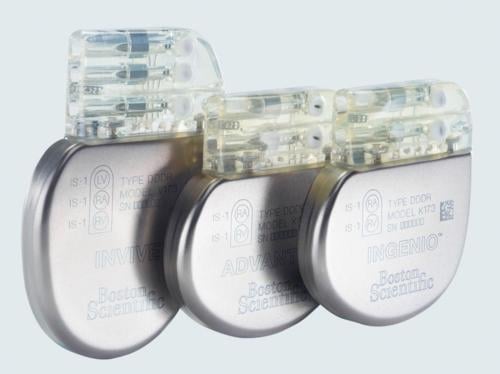
April 30, 2013 — The first patient in the United States has been implanted with the Boston Scientific Corporation ImageReady MR Conditional pacing system in the SAMURAI clinical trial. The study is designed to confirm the safety and effectiveness of the system in the magnetic resonance imaging (MRI) environment. While MRI images can help clinicians make informed decisions about treatment and care, most pacemakers are not compatible with MRI technology, and therefore patients may not have access to the sophisticated scanning capabilities of the diagnostic system.
The ImageReady pacing system is comprised of the Boston Scientific Ingenio MRI pacemaker family and the new Ingevity MRI pacing leads. The technology is aimed at reducing MRI interference with device performance. In addition, the Ingevity pacing lead platform is designed to provide key enhancements in handling and fixation compared to standard leads, and it is specifically engineered to function in the MRI environment.
"Physicians are very limited in device options and therapies labeled for use in the MRI setting," said Ronald Berger, M.D., Ph.D., professor of medicine, Johns Hopkins Medical Institutions. "The availability of a pacing system specifically designed to allow patients with pacemakers to undergo a broad set of MRI scanning conditions will advance the quality of patient care. The Ingenio MRI pacemaker family also offers pacing technologies not previously available in devices designed for the MRI environment."
The ImageReady pacing system offers Boston Scientific technologies, including RightRate rate adaptive pacing with the Minute Ventilation sensor, to restore chronotropic competence; Rythmiq, which is designed to minimize unnecessary right ventricular pacing without clinically significant pauses; and Latitude NXT, which is geared towards minimizing clinic and patient burden with wireless remote follow-up.
The SAMURAI trial is a prospective, open-label, two-group randomized, multi-center, global clinical study designed to support U.S. Food and Drug Administration (FDA) regulatory approval. The trial is expected to enroll approximately 363 patients at 45 centers in seven countries.
For more information: www.bostonscientific.com


 January 05, 2026
January 05, 2026 









